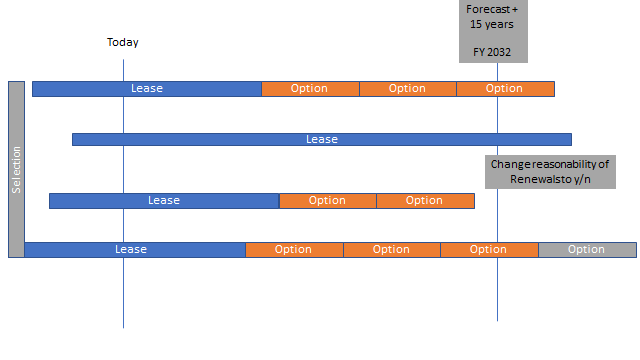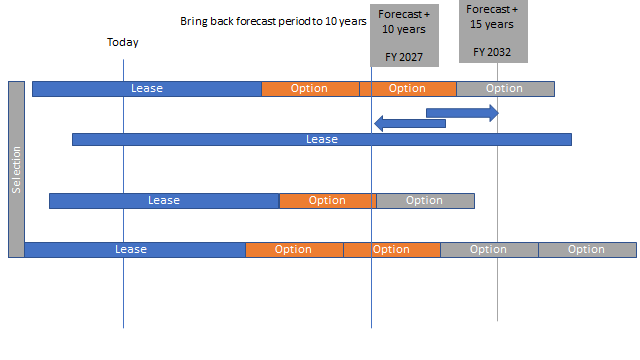Rolling renewals
As a contract manager, you may want to view your contracts in a time scope of several years, for any moment in time. Based on your existing renewal options and a horizon date, the time scope of the contract and all its related options can be varied. Any financial calculations will change accordingly.
Multiple renewal options can exist for a (running) contract. These renewal options are defined as being either reasonably certain or as not reasonably certain. As a rule, reasonably certain renewal options will be exercised. You can manually turn a 'reasonably certain' renewal option into 'not reasonably certain' and back. See Renewal options on lease contracts for more information.
If you want to 'automate' the consecutive application of renewal options on a contract line, you must set a Horizon date on the lease contract.
Based on the Horizon date entered on the contract, the system checks whether the certainty of your renewal options should be changed.


This is the concept of 'rolling renewals', which can have the following consequences:
• If the horizon date on the contract is set after the end date of the contract, renewal options with start dates before on the horizon start date, are switched to 'reasonably certain'. Existing 'reasonably certain' renewal options with start dates after the horizon start date, are switched to 'not reasonably certain'.
• If the horizon date of the contract is set before the end date of the contract, renewal options that are 'reasonably certain' are switched to 'not reasonably certain'. These options are no longer added to the lease.
• Making the horizon date empty will not have any effect on 'reasonably certain' renewal options.